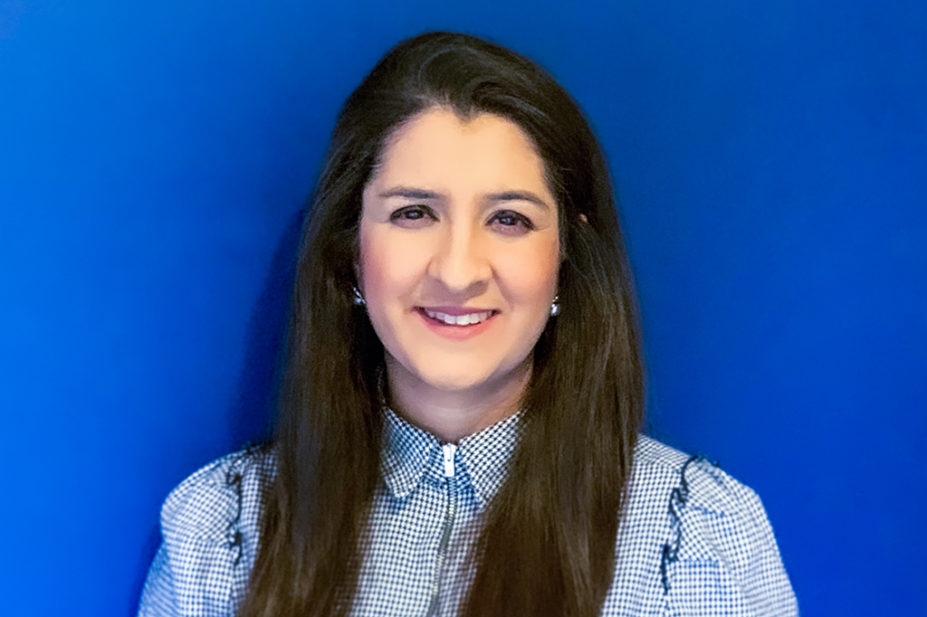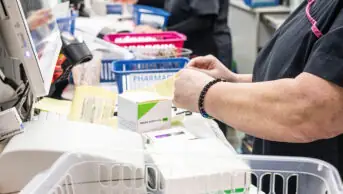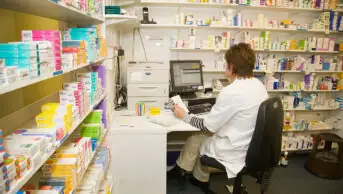
Preeti Minhas
After working in several managerial positions in community pharmacy, I made the move to pursue my passion in learning and development. At first, I worked for several multiples, preparing preregistration pharmacists to become pharmacists and educating pharmacy support staff.
However, after completing a postgraduate certificate in clinical pharmacy, I felt there was something missing in my career. To truly make a difference to patient care, I knew I would need to understand the NHS landscape in greater depth and understand how different healthcare professionals can work together to deliver positive outcomes.
In April 2020, I joined Education for Health — an organisation that provides courses to a wide range of healthcare professionals — of which I am now assistant director for clinical learning. My role is to oversee our courses on long-term conditions that are accredited by the University of Hertfordshire, as well as to oversee the clinical content of our non-accredited training and our newly developed spirometry programme.
Education for Health was established in 1987 with a focus on respiratory education but has since grown to also include courses on cardiovascular disease (CVD), diabetes and many other long-term conditions.
The key to a successful immunisation programme is to ensure that people are vaccinated, but this can only be done if people want to have the vaccine
Our commitment to delivering high-quality, impactful education has meant clinical commissioning groups (CCGs), primary care networks (PCNs) and training hubs come back to us time and time again as an education provider for healthcare professionals ranging from GPs, nurses, pharmacists and physiotherapists.
During the COVID-19 pandemic, we moved our programmes online but maintained an interactive approach. We wanted to continue to allow learners to ask questions in a live — but virtual — environment with an expert clinician, while also catering for different learning styles, which enabled people to progress at their own pace. Our goal is to provide healthcare professionals with the knowledge and know-how to deliver improved health outcomes.
08.30 – start
My day begins with a meeting about the COVID-19 resource centre, which we launched at the beginning of January 2021. Our programme focuses on delivering the minimum training standards for an individual to administer the COVID-19 vaccine safely and effectively.
It also provides a library of resources on the management and recovery of COVID-19 patients for a period of six months. It’s all about providing our learners with the tools to deliver an effective consultation, whether it is supporting someone’s recovery or tackling vaccine hesitancy in whichever setting they work.
During the meeting we focus on emerging data and the different vaccines coming on to the market, as well as looking at the areas in vaccine delivery that healthcare professionals are struggling with, such as the average number of doses obtained per vial, so that we are able to develop content that meets their needs.
09.00
After this, I start to plan for the next 12–18 months with the director of learning design and quality, Ann Saxon, and the chief executive Linda Edwards. The impact of COVID-19 on the healthcare system has been immense, from dealing with the backlog of appointments to delays in diagnostics, so it is really important for us to be flexible and agile in our delivery of education.
Gathering data from CCGs, PCNs and training hubs where we deliver the majority of our work, we start to look at the knowledge and skills that are needed for the workforce to meet the needs of patients today while ensuring we deliver for patients of tomorrow. We then align this with our current offering and identify any amendments and gaps in our courses on diabetes, CVD, respiratory and public health topics, including smoking cessation, vaccinations and COVID-19 management and recovery.
10.00
My next job of the day is to record a podcast with a leading professor from King’s College London on how to tackle vaccine hesitancy using lessons learnt from other public health programmes. This is going to be essential for community pharmacy because they have a role not only in administering the vaccine but also in engaging with the public moving forward. The key to a successful immunisation programme is to ensure that people are vaccinated, but this can only be done if people want to have the vaccine.
11.00
At a time when healthcare is faced with unprecedented challenges, partnering with other organisations is essential to support the health of the nation. Today, one of our expert associate clinicians is running an interactive virtual webinar for Asthma UK British Lung Foundation about childhood wheeze. I try to attend these virtual sessions so that I can hear the feedback from learners first hand, ensuring that we consistently deliver impactful programmes.
12.00
In my next virtual meeting, my associate director of partnerships, Adam Smith, and I work with a pharmaceutical company to develop a training programme that will support nurses to take diagnostic measurements during the clinical trial of a new drug. Workshops will be delivered online with a clinical expert from my team. It will be our first virtual workshop in North America.
12.30
Stepping away from the learning solutions, I continue to work with our associate director of partnerships focusing on refining our long-term conditions profiling tools. These can be used by healthcare professionals to identify different levels of risk in patients with long-term conditions, whether in community pharmacy or in GP practice.
This is particularly important as the profiling tools are an ideal way of supporting healthcare professionals with their patients who have long-term conditions, prioritising patients who require significant attention when demands on capacity have never been greater. Supporting healthcare professionals to manage long-term conditions is a real focus area for me as we consider the impact of COVID-19 on capacity now and into the future.
13.30
As part of my role, I look after a group of 50 clinical associates, including primary and secondary care nurses and community pharmacists, as well as pharmacists working in general practice. Each of them specialises in a clinical condition, such as diabetes, CVD, asthma and COPD. Today, I am working with a secondary care nurse to develop a new programme, focusing on severe asthma. Having these one-to-one discussions with the wider team keeps me apprised of what is happening on the front line.
14.30
Quality assurance is an extremely important part of our courses, particularly those that have been accredited by our partner university, the University of Hertfordshire. We hold a moderation board twice a month where we ensure the pass marks awarded are consistent with the marking criteria.
Before I finish for the day at 16.15, I look to see which meetings I have over the next few days and ensure I am prepared for these. Then, as I drive to collect my children, I take the opportunity to gather my thoughts and speak to my family and friends. I will normally log back on when I return to check if anything urgent has come up.
Box: Are you interested in a similar role?
- Start from grassroots — I am only able to do my role today because I learned what life was like on the frontline, from meeting patients and managing teams through to working alongside other healthcare professionals, such as GPs and nurses. It is this experience that enables me to ensure I am designing impactful courses that meet the needs of the learner;
- It is important to develop yourself. This may be by enhancing your clinical knowledge or taking the relevant learning and development qualification. It is important for you to reflect and think about things that would help you to transition into a learning and development role;
- Take every opportunity to support the design and delivery of pharmacy education, whether this is within your organisation or externally. This will help you understand how to shape your materials to meet the needs of different learning styles as well as provide you with facilitation experience;
- Don’t expect a linear career path. You may need to take side steps or even backwards but don’t let this distract you from your goal of educating. Every experience will contribute to you being an authentic leader;
- Contact colleagues who are undertaking a role in learning and development. Learn from their experiences and where appropriate ask them to be a mentor. Ensure you are clear about what you want to get out of the mentee–mentor relationship.


